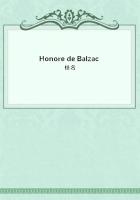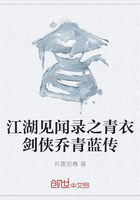'Come, come, Towers,' said Bold, plucking up his courage, and remembering that for Eleanor's sake he was bound to make his best exertion; 'I have no doubt in my own mind but that you wrote the articles yourself, and very well written they were: it will be a great favour if you will in future abstain from any personal allusion to poor Harding.'
'My dear Bold,' said Tom Towers, 'I have a sincere regard for you. I have known you for many years, and value your friendship; I hope you will let me explain to you, without offence, that none who are connected with the public press can with propriety listen to interference.'
'Interference!' said Bold, 'I don't want to interfere.'
'Ah, but, my dear fellow, you do; what else is it? You think that I am able to keep certain remarks out of a newspaper.
Your information is probably incorrect, as most public gossip on such subjects is; but, at any rate, you think I have such power, and you ask me to use it: now that is interference.'
'Well, if you choose to call it so.'
'And now suppose for a moment that I had this power, and used it as you wish: isn't it clear that it would be a great abuse? Certain men are employed in writing for the public press; and if they are induced either to write or to abstain from writing by private motives, surely the public press would soon be of little value. Look at the recognised worth of different newspapers, and see if it does not mainly depend on the assurance which the public feel that such a paper is, or is not, independent. You alluded to The Jupiter: surely you cannot but see that the weight of The Jupiter is too great to be moved by any private request, even though it should be made to a much more influential person than myself: you've only to think of this, and you'll see that I am right.'
The discretion of Tom Towers was boundless: there was no contradicting what he said, no arguing against such propositions.
He took such high ground that there was no getting on it. 'The public is defrauded,' said he, 'whenever private considerations are allowed to have weight.' Quite true, thou greatest oracle of the middle of the nineteenth century, thou sententious proclaimer of the purity of the press--the public is defrauded when it is purposely misled. Poor public! how often is it misled! against what a world of fraud has it to contend!
Bold took his leave, and got out of the room as quickly as he could, inwardly denouncing his friend Tom Towers as a prig and a humbug. 'I know he wrote those articles,' said Bold to himself. 'I know he got his information from me. He was ready enough to take my word for gospel when it suited his own views, and to set Mr Harding up before the public as an impostor on no other testimony than my chance conversation; but when I offer him real evidence opposed to his own views, he tells me that private motives are detrimental to public justice! Confound his arrogance! What is any public question but a conglomeration of private interests? What is any newspaper article but an expression of the views taken by one side? Truth! it takes an age to ascertain the truth of any question! The idea of Tom Towers talking of public motives and purity of purpose! Why, it wouldn't give him a moment's uneasiness to change his politics tomorrow, if the paper required it.'
Such were John Bold's inward exclamations as he made his way out of the quiet labyrinth of the Temple; and yet there was no position of worldly power so coveted in Bold's ambition as that held by the man of whom he was thinking. It was the impregnability of the place which made Bold so angry with the possessor of it, and it was the same quality which made it appear so desirable.
Passing into the Strand, he saw in a bookseller's window an announcement of the first number of The Almshouse; so he purchased a copy, and hurrying back to his lodgings, proceeded to ascertain what Mr Popular Sentiment had to say to the public on the subject which had lately occupied so much of his own attention.
In former times great objects were attained by great work.
When evils were to be reformed, reformers set about their heavy task with grave decorum and laborious argument. An age was occupied in proving a grievance, and philosophical researches were printed in folio pages, which it took a life to write, and an eternity to read. We get on now with a lighter step, and quicker: ridicule is found to be more convincing than argument, imaginary agonies touch more than true sorrows, and monthly novels convince, when learned quartos fail to do so. If the world is to be set right, the work will be done by shilling numbers.
Of all such reformers Mr Sentiment is the most powerful.















